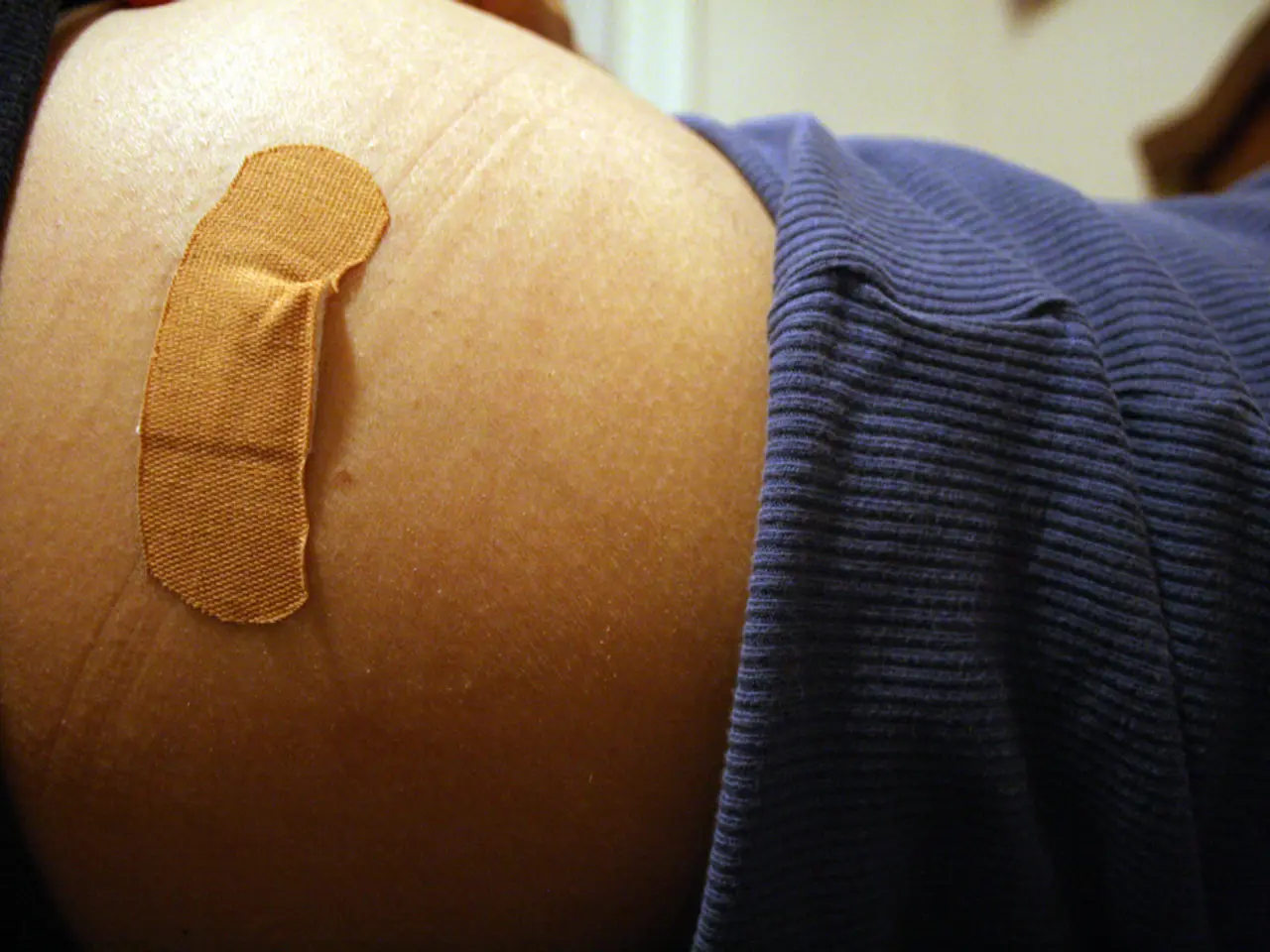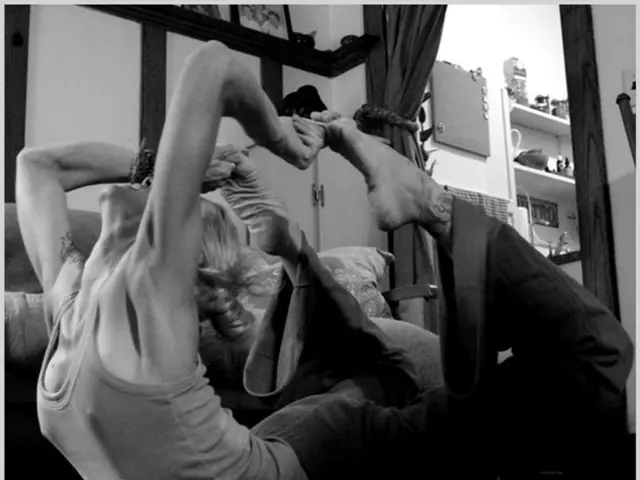Home Wound Cleaning: Recognizing When Professional Assistance is Necessary
Dealing with a minor wound at home can be manageable, but it's essential to follow the right steps to ensure a quick and healthy recovery. Here's a guide on how to care for minor wounds and when it's time to seek medical help.
Caring for Minor Wounds at Home
- Stop the bleeding: Apply gentle pressure using a clean cloth or bandage until the bleeding subsides.
- Clean the wound: Use mild soap and cool water to clean the wound, avoiding harsh substances like hydrogen peroxide or alcohol.
- Dry the area: Carefully dry the area, especially the healthy skin around the wound, to help dressings stick properly.
- Apply an antibiotic ointment or a gentle moisturizing gel: Use antibiotic ointments or creams for more serious wounds to prevent infection, and gentle moisturizing gels like aloe vera for burns to soothe and protect the skin.
- Cover the wound: Use a sterile, non-stick bandage to protect the wound from infection and prevent it from rubbing against clothing.
- Change the dressing daily: Keep the area clean as it heals by changing the dressing daily.
- Take pain relievers: If there is pain, take over-the-counter pain relievers such as ibuprofen or acetaminophen.
When to Seek Medical Help
While minor wounds can be treated at home, it's crucial to know when to seek professional help. Here are some signs that indicate you should seek medical attention:
- The wound is deep, large, or gaping, or caused by a dirty or rusty object.
- Bleeding does not stop after several minutes of applying pressure or if blood is spurting.
- The wound is on the face, hand, or over a joint, as these areas may need special care.
- There are signs of infection, such as increasing redness, swelling, warmth, pus, or fever.
- The wound does not heal properly or worsens.
- If you have an underlying condition such as diabetes, you should consult a healthcare professional even for small wounds, especially on the feet.
In summary, minor wounds can often be effectively managed at home by careful cleaning, protecting, and monitoring for signs of complications. Prompt medical attention is important for wounds that are deep, bleeding heavily, infected, or located in sensitive areas. Always remember, when in doubt, consult a healthcare provider.
In the realm of health-and-wellness, it's pivotal to follow appropriate steps for managing minor wounds at home, as detailed in this guide, to ensure a quick and healthy recovery. However, if the wound is deep, large, or located in a sensitive area like the face or hands, or if it's caused by a dirty or rusty object, it's crucial to seek medical opinion to prevent potential complications for the environment of the body.




